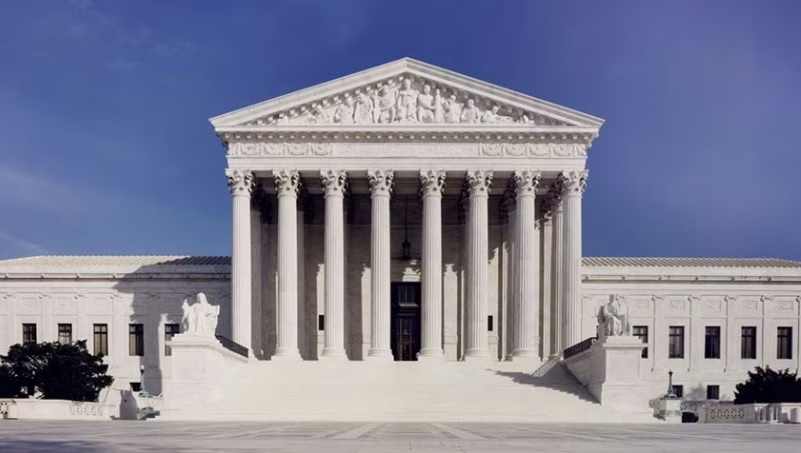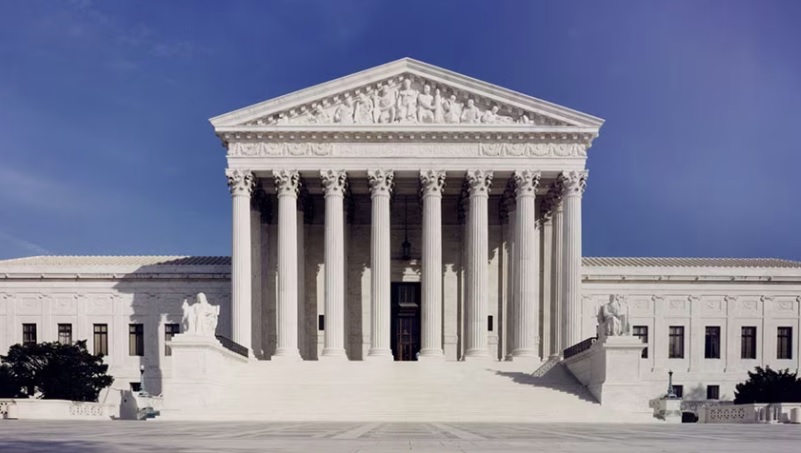Featured
Supreme Court Remains Mum on Mississippi Felony Suffrage Appeal

By Bobby Harrison,
Mississippi Today

The U.S. Supreme Court, more than six months after receiving the case, still has not announced whether it will consider a lawsuit challenging the constitutionality of a Mississippi provision that places a lifetime voting ban on many people with felony convictions.
The nine-member court has set the Mississippi case for conference, where the justices decide whether to hear a case, 17 times this year. But each time the justices have postponed rendering a decision on whether Mississippi’s lifetime felony voting ban, the only one like it in the nation, is constitutional.
The first time the justices set the case for conference was Jan. 18.
It was set for conference for the 17th time this year for this week. Normally it is announced on Mondays whether the Supreme Court justices will hear a case. Supporters of the lawsuit have viewed it as a positive that the court has not yet announced it would not hear the case.
Four of the nine judges must agree to take up a case on appeal in order for the high court to hear it. According to the U.S. Courts webpage, “the Court accepts 100-150 of the more than 7,000 cases that it is asked to review each year.”
The case is an appeal of a decision last year by the U.S. 5th Circuit Court of Appeals upholding the provision imposing a lifetime ban on voting for many people convicted of felonies. The lifetime ban was imposed on certain crimes that the framers of the 1890 Mississippi Constitution believed at the time Black people were more likely to commit, the 5th Circuit conceded in upholding the provision.
The Mississippi Center for Justice and others filed the lawsuit currently pending before the Supreme Court on behalf of Mississippians who lost their voting rights after being convicted of felonies.
Mississippi is among a handful of states — fewer than 10 — where people do not regain their voting rights at some point after completing their sentence. Mississippi is the only state where people who lose the right to vote must garner a two-thirds vote of each chamber of the Legislature to regain their suffrage. The Legislature has been reluctant to restore voting rights. No voting rights were restored during the 2023 legislative session. Governors also can restore voting rights, but also have been reluctant to do so on a large scale.
Those challenging the lawsuit say the 1890 provision is unconstitutional because it was enacted for a discriminatory purpose, thus having a “racial taint.” State Attorney General Lynn Fitch argued the “racial taint” had been removed because of action in more recent times, and a majority of the 5th Circuit agreed.
In 1950 the Legislature passed a proposal that was approved by voters to remove burglary as one of the disfranchising crimes. And in the 1960s, the Legislature and ultimately the voters approved a provision making murder and rape disenfranchising crimes.
Those changes, the 5th Circuit majority found, removed the “racial taint” from the original 1890 language. But Rob McDuff, an attorney with the Center for Justice, pointed out that those changes were made during an era of intense racial conflict and discrimination in the state. Perhaps more importantly, the changes did not allow Mississippians to vote on whether to remove lifetime bans from voting on people convicted of other felonies.
Or as Court of Appeals Judge James Graves wrote in his dissent, “Mississippians have simply not been given the chance to right the wrongs of its racist origins. And this court … deprives Mississippians of this opportunity by upholding an unconstitutional law enacted for the purpose of discriminating against Black Mississippians on the basis of race.”
Fitch’s office also argued that state commissions pondered changing the felony suffrage provision in the 1980s and opted not to do so, thus removing the racial taint.
Those crimes placed in the constitution where conviction costs a person the right to vote are bribery, theft, arson, obtaining money or goods under false pretense, perjury, forgery, embezzlement, bigamy and burglary.
Under the original language of the constitution, a person could be convicted of cattle rustling and lose the right to vote, but those convicted of murder or rape would still be able to vote — even while incarcerated.
This article first appeared on Mississippi Today and is republished here under a Creative Commons license.





























